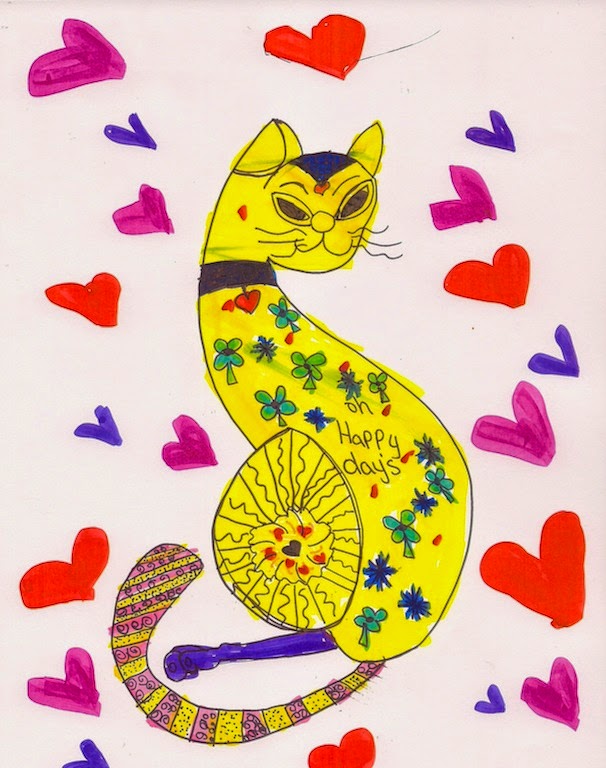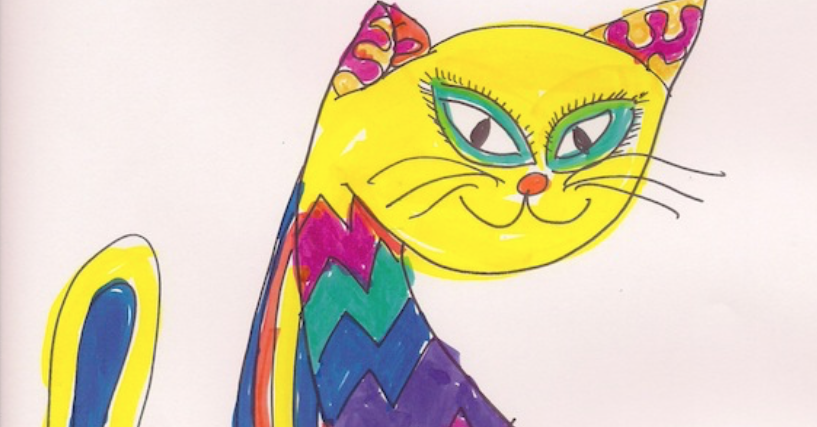Art lessons help us teach many important life skills. . .

-
Persistence,
-
Craft, and
-
Belonging and Independence
If we teach art well, we will also be teaching the skill of reflection—the ability to look honestly at our work and make critical evaluations. Older students who have some background in art appreciate honest feedback—it also helps them critique their own work. One high school student quoted in Studio Thinking 2, says,
-
“When I was younger, I wanted to hear people tell me, ‘Oh, you’re doing so good. . . Now I just want to grow. So just by hearing good things, you don’t grow.’”
Of course, as you listen to this student, you wonder, “What about younger students? Do they also like to hear this kind of criticism? What kind of reflection is appropriate for students
-
in elementary and middle school
-
students who crave support and commendation, and
-
students who are new at doing art, and therefore feel uncertain?
What kind of feedback would you give to an elementary student who has created one of these cats in response to the Ukrainian Cat lesson?
The tendency is to recognize the student’s work with a cheery “Good Job!” and a pat on the back. But such feedback is pretty hollow.
Some better responses would be to make an observation about the work, such as. . .
-
This painting uses a lot of yellow. The yellow makes it really bright!”
-
You used every primary and secondary color! Do you know which of the colors are the primary colors?
-
The hearts are an original idea! They help to balance the composition.
Comments like these are a first step in helping students learn the skill of reflection.
If you would like more help with giving feedback—in art lessons and in everyday life—you can find a helpful poster and lots more advice HERE.
It's easy to teach students to reflect on their own work with the questions at the end of each ArtAchieve art lesson.

Art lessons help us teach many important life skills. . .

-
Persistence,
-
Craft, and
-
Belonging and Independence
If we teach art well, we will also be teaching the skill of reflection—the ability to look honestly at our work and make critical evaluations. Older students who have some background in art appreciate honest feedback—it also helps them critique their own work. One high school student quoted in Studio Thinking 2, says,
-
“When I was younger, I wanted to hear people tell me, ‘Oh, you’re doing so good. . . Now I just want to grow. So just by hearing good things, you don’t grow.’”
Of course, as you listen to this student, you wonder, “What about younger students? Do they also like to hear this kind of criticism? What kind of reflection is appropriate for students
-
in elementary and middle school
-
students who crave support and commendation, and
-
students who are new at doing art, and therefore feel uncertain?
What kind of feedback would you give to an elementary student who has created one of these cats in response to the Ukrainian Cat lesson?
The tendency is to recognize the student’s work with a cheery “Good Job!” and a pat on the back. But such feedback is pretty hollow.
Some better responses would be to make an observation about the work, such as. . .
-
This painting uses a lot of yellow. The yellow makes it really bright!”
-
You used every primary and secondary color! Do you know which of the colors are the primary colors?
-
The hearts are an original idea! They help to balance the composition.
Comments like these are a first step in helping students learn the skill of reflection.
If you would like more help with giving feedback—in art lessons and in everyday life—you can find a helpful poster and lots more advice HERE.
It's easy to teach students to reflect on their own work with the questions at the end of each ArtAchieve art lesson.

Art lessons help us teach many important life skills. . .

-
Persistence,
-
Craft, and
-
Belonging and Independence
If we teach art well, we will also be teaching the skill of reflection—the ability to look honestly at our work and make critical evaluations. Older students who have some background in art appreciate honest feedback—it also helps them critique their own work. One high school student quoted in Studio Thinking 2, says,
-
“When I was younger, I wanted to hear people tell me, ‘Oh, you’re doing so good. . . Now I just want to grow. So just by hearing good things, you don’t grow.’”
Of course, as you listen to this student, you wonder, “What about younger students? Do they also like to hear this kind of criticism? What kind of reflection is appropriate for students
-
in elementary and middle school
-
students who crave support and commendation, and
-
students who are new at doing art, and therefore feel uncertain?
What kind of feedback would you give to an elementary student who has created one of these cats in response to the Ukrainian Cat lesson?
The tendency is to recognize the student’s work with a cheery “Good Job!” and a pat on the back. But such feedback is pretty hollow.
Some better responses would be to make an observation about the work, such as. . .
-
This painting uses a lot of yellow. The yellow makes it really bright!”
-
You used every primary and secondary color! Do you know which of the colors are the primary colors?
-
The hearts are an original idea! They help to balance the composition.
Comments like these are a first step in helping students learn the skill of reflection.
If you would like more help with giving feedback—in art lessons and in everyday life—you can find a helpful poster and lots more advice HERE.
It's easy to teach students to reflect on their own work with the questions at the end of each ArtAchieve art lesson.




